China's one-child policy reversal cautiously welcomed
- Published
- comments
China's one-child policy explained
Chinese state media have welcomed the news China is reforming its decades-old one-child policy, with one editorial saying it "echoes the people's will".
But right groups have said the measures do not go far enough and restrictions should be abolished altogether.
On Thursday, the government said it was relaxing the rules to allow all couples to have two children.
It said the decision was made because of its rapidly ageing population and to help support the economy.
In a statement posted on its website on Friday, China's National Health and Family Planning Commission said 90 million couples would be eligible for the new two-child policy.
But it did not say when the policy would be implemented.
Currently, families who want a second child will still have to apply for approval - but officials would work towards replacing the approvals system with a registration system, the commission said.

I lost two siblings - by Juliana Liu, BBC News Hong Kong correspondent
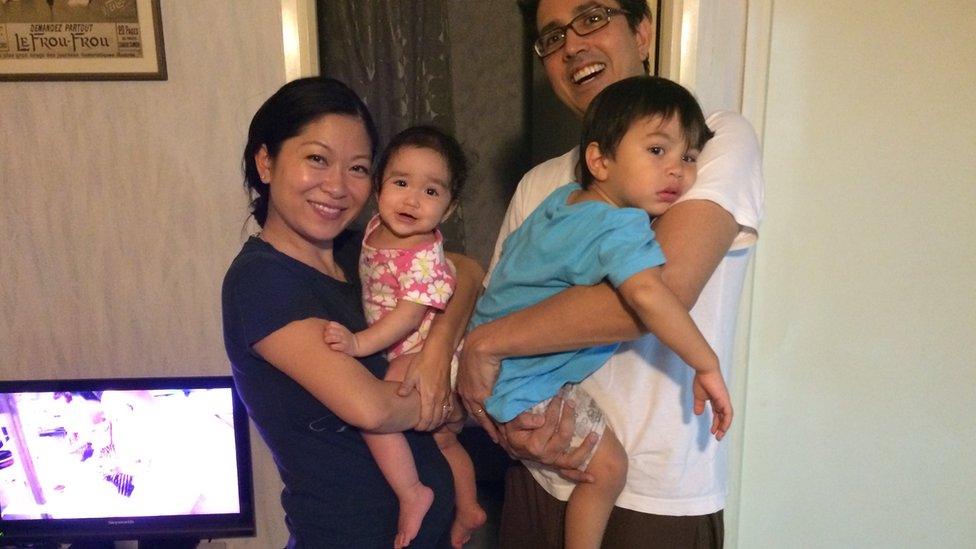
The BBC's Juliana Liu, pictured with her family
I was born in 1979, the year the one-child policy was implemented. And even then, I wasn't supposed to be born.
In my parents' work unit, there were also quotas for babies. By the time my mother announced her pregnancy, the quotas were all used up for the year.
But kind-hearted officials decided to look the other way and allowed my birth. My would-be siblings were less lucky.
As a result of the policy, my mother had to endure two abortions. Even today, she talks about 'Number Two' and 'Number Three' and what they might have been like.

The commission also said it would look into boosting medical care for pregnant women and mothers, as it expects more older women to conceive after the policy change.
It noted that about 60% of women who can have a second child are currently above the age of 35.
'Burden in resources'
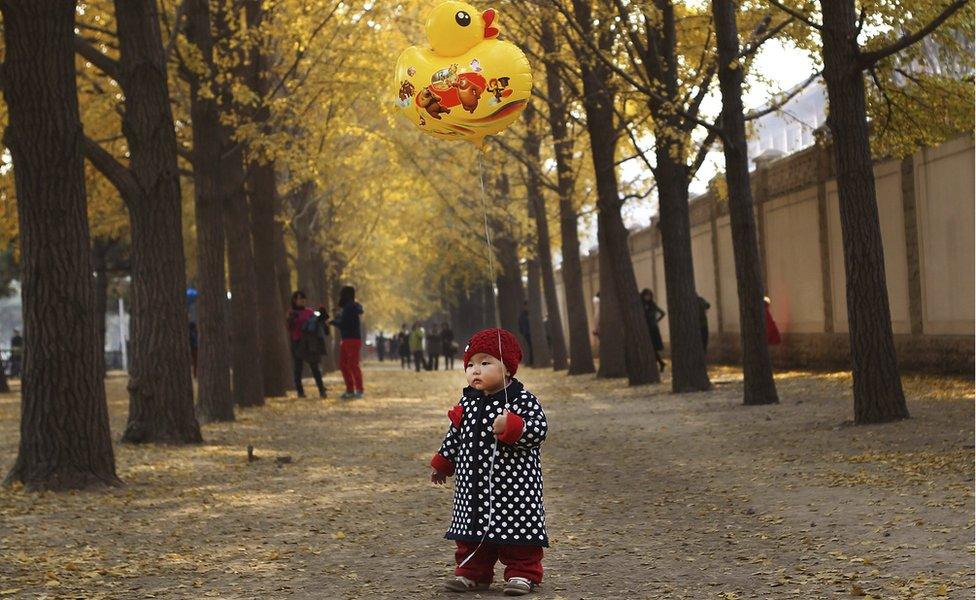
The cost of raising a child could still put many Chinese couples off trying to conceive again
China's controversial one-child policy was introduced nationally in 1979 to slow the population growth rate, and is estimated to have prevented about 400 million births.
Though there were exceptions to the policy, most couples who violated it faced punishment, from fines and the loss of employment to forced abortions.
In an editorial on Friday, the state-owned Global Times said the end of the policy "echoes people's will", acknowledging that it had been widely condemned.
But it argued the family planning ruled had "managed to control China's birth rate, alleviating China's burden in resources and giving impetus to its economic takeoff".
China has long said limiting families to one child was necessary to facilitate economic progress.
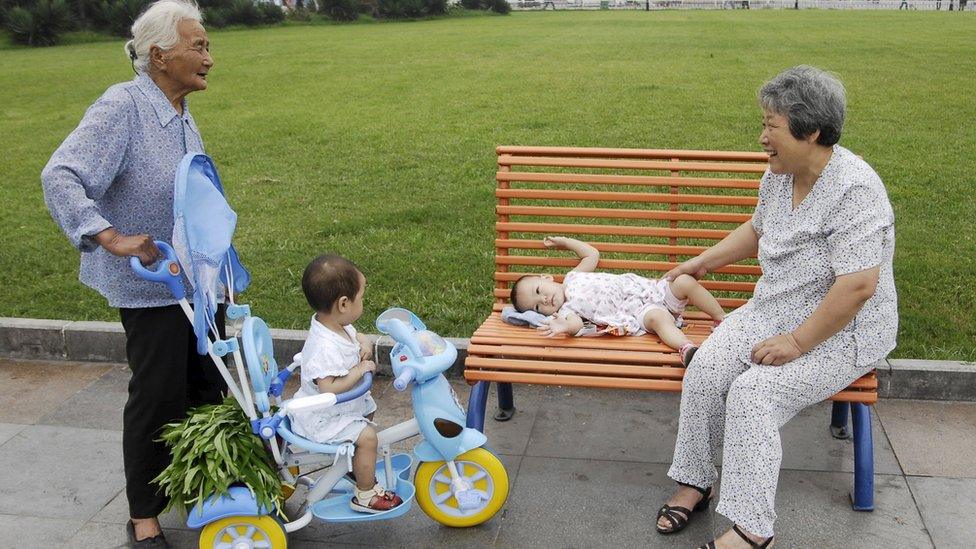
The policy has left China with an ageing population and grandparents often left caring for children as parents work
The official China Daily also had an editorial calling it a move "by the authorities to fine-tune the family planning policy, amid the nations's changing demo-graphics, which would lead to potential labour shortages in the future if not addressed".
Some experts have said the change to allow two children will take some time to alleviate the problem of an ageing population.
Previous loosening of the rules have led to fewer extra births than expected, partly because of the cost of raising a child.
"Couples born in the 1970s may want to have a second child as they want to 'catch the last bus,' but those born in the 1980s and 1990s have no urgent desire to give birth to a second child," Lu Jiehua, a sociologist with Peking University told the official China Daily.
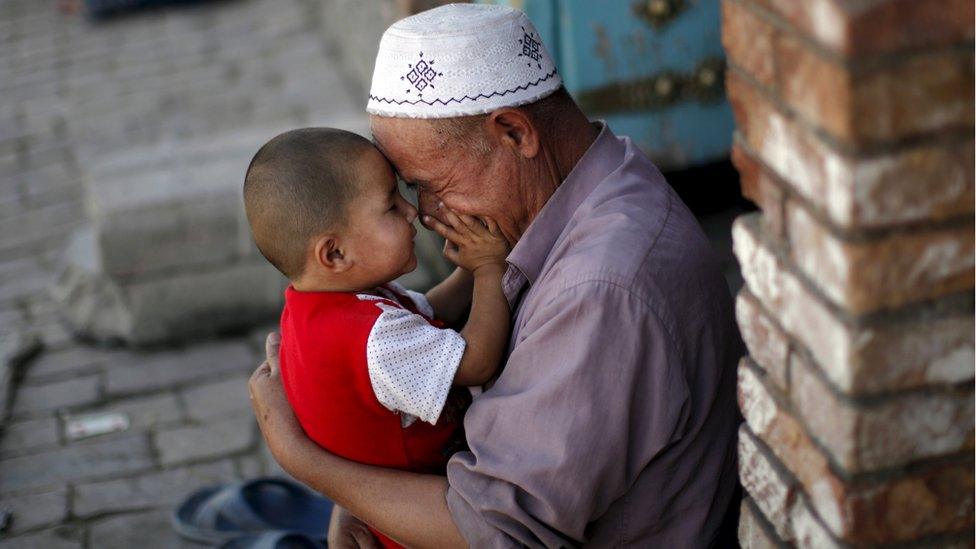
Several of China's ethnic minorities, and parents who were both single children, were exempt from the family restrictions
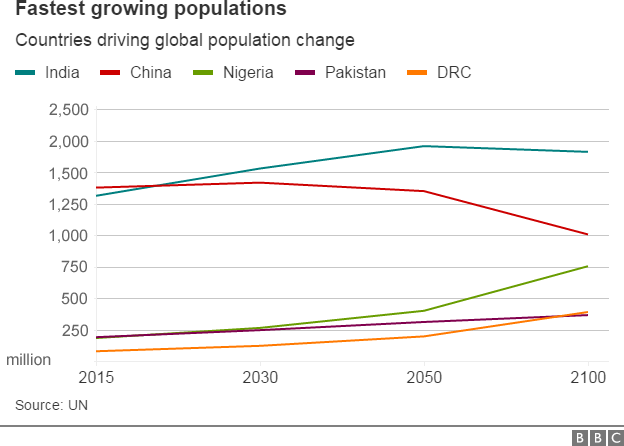
One of China's most vocal activists against the one-child policy, Chen Guangcheng, said "everybody needs to be circumspect" about this announcement.
"They're still maintaining strict control on something that should be everyone's right. They need to eliminate it entirely," Mr Chen, who now lives is the US, said of the government.
The move came on the final day of a summit of the Communist Party's policy-making Central Committee, known as the fifth plenum.
The party also announced growth targets and its next five year plan.

China's one-child policy
John Sudworth examines the painful legacy of China's one-child policy
Introduced in 1979, the policy meant that many Chinese citizens - around a third, external, China claimed in 2007 - could not have a second child without incurring a fine
In rural areas, families were allowed to have two children if the first was a girl
Other exceptions included ethnic minorities and - since 2013 - couples where at least one was a single child
Campaigners say the policy led to forced abortions, female infanticide, and the under-reporting of female births
It was also implicated as a cause of China's gender imbalance

Are you in China? Are you affected by this story? Email haveyoursay@bbc.co.uk, external with your experiences. If you are happy to speak to a BBC journalist, please include contact details.
WhatsApp: +44 7525 900971
Tweet: @BBC_HaveYourSay, external
Send an SMS or MMS to 61124